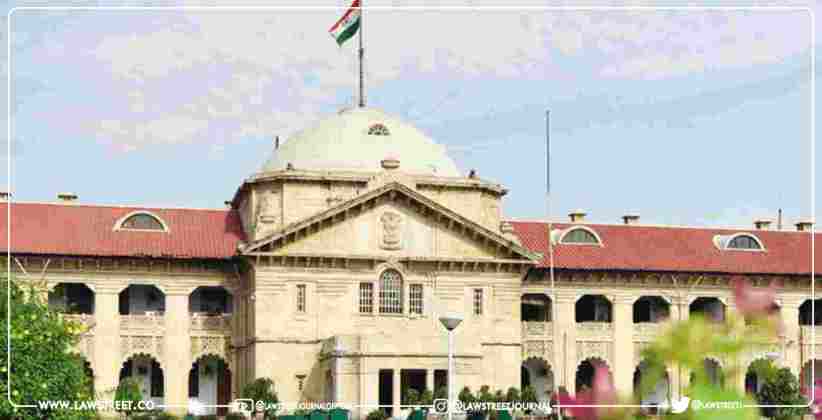The market value of a property for the purposes of Section 47-A of the Indian Stamp Act[1] must be calculated with reference to the use to which the land is reasonably capable of being put immediately or in the foreseeable future, according to the Allahabad High Court.
The Allahabad High Court has stated that, for the purposes of Section 47-A of the Indian Stamp Act, the market value of a property must be established with reference to the use to which the land is reasonably capable of being put immediately or in the near future. It should be emphasised that if an instrument is found to be undervalued (as was the case in this case), a procedure has been established under Section 47-A of the Act for determining the correct stamp duty on the instrument.
The market value of the property must be considered, and if the market value of the property mentioned in the instrument is less than the minimum value determined in accordance with the Act's rules, the registering officer has the authority to impound the instrument when it is presented for registration.
It should also be noted that the authority has the authority to require the person entitled to pay stamp duty to pay a deficit stamp duty calculated on the basis of the minimum value set in accordance with the rules and to return the instrument for registration.
CASE IN BRIEF
Petitioner / Registered Society the Assembly of God North India Balrampur said to be a registered society under the provisions of the West Bengal Societies Registration Act, 1961 having its registered office at West Bengal. The object of the society is to promote education at all levels for the children of all communities of India through schools, existing institutions and adult literacy programmes.
The petitioner-society had purchased a land comprised in 0.408 hectares area situated at Village Amaya, District Balrampur vide sale deed dated 6.1.2006.
After that petitioner-society paid stamp duty on a sale consideration of Rs.24 Lakhs. Deputy Registrar, Utraula in his report said that the land purchased by the petitioner-society had commercial use, for which the rate was fixed at Rs.5,400/- per Sq. M., whereas the stamp duty was paid at agricultural rate of the land i.e. Rs.3,50,000/- per acre.
On February 13 , 2006 during the inspection of the land in question was made and it was found that on north of the land, there was a house of one Izharul Hasan and on the south, house of Pankaj was being constructed and on west, after the pathway, houses of Raza Pajtan and Israt Husain were constructed and 50 Meters away from the land in question, petrol pump and National Modern Public Junior High School were situated.
Considering the use of the land, it was said that the stamp duty ought to have been paid on commercial rate. However, by concealing the material facts, deficit stamp duty of Rs.3,12,360/- was paid. On the basis of the aforesaid report, after impounding the sale deed, a notice was issued for payment of the deficit stamp duty of Rs.3,12,360/- to the petitioner-society.
The petitioners society in his reply submitted that the land in question was being used for agricultural purposes. The stamp duty was paid at Rs.24 Lakhs, whereas the sale consideration was only Rs.23,45,000/-.
It was said that nature of the land in question was agricultural land and, therefore, the stamp duty on commercial rate was not payable by the petitioner-society.
It was found that the petitioner-society had purchased the land for housing purposes. However, this fact was not clearly mentioned in the sale deed. Collector (Stamp) also noted that at the time when the land was purchased, it was said that the land would be used for household (Grihasti) purposes, but at the time of inspection, construction activities of houses were being carried out
OBSERVATION OF THE COURT
The Honble Court observed that under Section 27 of the Act, it is provided that besides consideration, all other facts and circumstances affecting the chargeability of any instrument with duty are required to be truly set forth in the instrument. Under this Section, in case of instruments relating to immovable property chargeable with an ad valorem duty, the duty is payable on the true value of the property and not on the value set forth in the instrument.[2]
After that the Honble Court said that
Where it is found that an instrument is undervalued, the procedure has been set forth under Section 47-A of the Act for assessing the correct stamp duty on the instrument.
22. From the reading of Section 47-A of the Act, it is evident that what has to be seen is the market value of the property and, if it is found that value of the property mentioned in the instrument is less than even the minimum value determined in accordance with the rules made under this Act, the registering officer is empowered to impound the instrument when it is presented for registration and require the person liable to pay stamp duty with deficit stamp duty as computed on the basis of the minimum value determined in accordance with the rules and return the instrument for presenting again for registration.
Further, regarding the determination of factors to evaluate the market value of the property, the Court also referred to the HC's ruling in the case of Smt. Pushpa Sareen Vs. State of U.P. and others,[3]has held that the power of Collector to determine the market value either on a reference under Sub-section (1) or (2) of Section 47-A or acting suo motu under sub-section (4) was to determine the correct market value of the property. The market value of the property has to be determined with reference to the use to which the land is capable reasonably of being put to immediately or in the proximate future. The Collector would be within jurisdiction in referring to exemplars which have a bearing on the true market value of property which is required to be assessed.
JUDGEMENT
In the present case, it is admitted case of the petitioners that they had bought the land in question not for agricultural purposes, but for household (Grihasti) purposes and in fact within a few months, they had started construction of the houses on the said land, which is evident from the report of the Collector . The Collector (Stamp) has determined the true market value of the property after considering the relevant factors as mentioned above in the said judgement of Smt. Pushpa Sareen (supra).
Considering the aforesaid facts, I do not find that either the Collector (Stamp) or the Commissioner erred in determining the true market value of the property and accordingly the stamp duty payable on the instrument.
31. In view thereof, the present writ petition has no force and is hereby dismissed. Interim order, if any, stands vacated.
[1]Section 47-A of Indian Stamp Act , 1899
Under-valuation of the instrument.--- "(1) (a) If the market value of any property which is the subject of any instrument, on which duty is chargeable on the market value of the property as set forth in such instrument, is less than even the minimum value determined in accordance with the rules made under this Act, the registering officer appointed under the Registration Act, 1908 shall, notwithstanding anything contained in the said Act, immediately after presentation of such instrument and before accepting it for registration and taking any action under section 52 of the said Act, require the person liable to pay stamp duty under section 29, to pay the deficit stamp duty as computed on the basis of the minimum value determined in accordance with the said rules and return the instrument for presenting again in accordance with section 23 of the Registration Act, 1908.
(b) When the deficit stamp duty required to be paid under clause (a), is paid in respect of any instrument and the instrument is presented again for registration, the registering officer shall certify by endorsement thereon, that the deficit stamp duty has been paid in respect thereof and the name and the residence of the person paying them and register the same.
(c) Notwithstanding anything contained in any other provisions of this Act, the deficit stamp duty may be paid under clause (a) in the form of impressed stamps containing such declaration as may be prescribed.
(d) If any person does not make the payment of deficit stamp duty after receiving the order referred to in clause (a) and presents the instrument again for registration, the registering officer shall, before registering the instrument, refer the same to the Collector, for determination of the market value of the property and the proper duty payable thereon."
(2) On receipt of a reference under sub-section (1) the Collector shall, after giving the parties a reasonable opportunity of being heard and after holding an inquiry in such manner as many be prescribed by rules made under this Act, determine the market value of the property which is the subject of such instrument and the proper duty payable thereon.
(3) The Collector may, suo motu, or on a reference from any court or from the Commissioner of Stamps or an Additional Commissioner of Stamps or a Deputy Commissioner of Stamps or an Assistant Commissioner of Stamps or any officer authorized by the State Government in that behalf, within four years from the date of registration of any instrument on which duty is chargeable on the market value of the property not already referred to him under sub-section (1) call for and examine the instrument for the purpose of satisfying himself as to the correctness of the market value of the property which is the subject for of such instrument, and the duty payable thereon and if after such examination he has reason to believe that market value of such property has not been truly set forth in such instrument he may determine the market value of such property and the duty payable thereon:
Provided that, with the prior permission of the State Government, an action under this sub-section may be taken after a period of four years but before a period of eight years from the date of registration of the instrument on which duty is chargeable on the market value of the property
[2] Section 27 of the Indian Stamp Act 1899
Facts affecting duty to be set forth in instrument. (1) The consideration (if any) and all other facts and circumstances affecting the chargeability of any instrument with duty, or the amount of the duty with which it its chargeable, shall be fully and truly set forth therein. (2) In the case of instruments relating to immovable property chargeable with an ad valorem duty on the value of the property, and not on the value set forth, the instrument shall fully and truly set forth the annual land revenue in the case of revenue paying land, the annual rental or gross assets, if any, in the case of other immovable property the local rates, Municipal or other taxes, if any, to which such property may be subject and any other particulars which may be prescribed by rules made under this Act.
[3] 2015 (2) ESC 819 (All) (FB)













